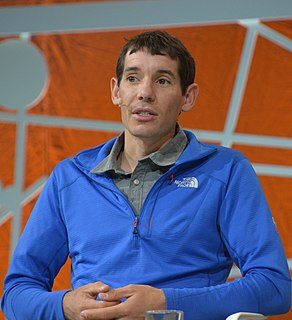A Quote by Angelina Jolie
I made a decision to have a preventive double mastectomy. I started with the breasts, as my risk of breast cancer is higher than my risk of ovarian cancer, and the surgery is more complex.
Related Quotes
People are used to dealing with risk. You are told if you smoke, you are at higher risk of lung cancer. And I think people are able to also understand, when they are told they are a carrier for a genetic disease, that is not a risk to them personally but something that they could pass on to children.
I hope that other women can benefit from my experience. Cancer is still a word that strikes fear into people’s hearts, producing a deep sense of powerlessness. But today it is possible to find out through a blood test whether you are highly susceptible to breast and ovarian cancer, and then take action... It is my hope that they, too, will be able to get gene tested, and that if they have a high risk they, too, will know that they have strong options. Life comes with many challenges. The ones that should not scare us are the ones we can take on and take control of.































